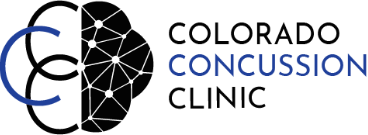As a speech-language pathologist who has focused on treating adults with neurological deficits, I hear this question ALL. THE. TIME. It’s understandable that people become very concerned whenever they have changes in their memory. And unfortunately, there is no easy answer. But hopefully the information in this blog post will provide you with the information you need to help answer this question.
Unfortunately, many of the signs of early stage dementia are also symptoms of concussion. These common signs include forgetfulness, trouble concentrating as long as you used to, difficulty finding the right words, changes in behavior/mood, and difficulty completing daily tasks. Therefore, it can be very difficult to determine if you have dementia based solely on those symptoms. One of the biggest ways to differentiate between the two is that you can typically make progress and recover after a concussion, but dementia typically gets progressively worse over time. If you did not notice any difficulties prior to sustaining your concussion, and then acute changes occurred, that would lead me to believe that the issues are concussion related. It is also possible that you are experiencing some normal cognitive decline (we call that getting older).
Once someone reaches us for treatment, we will typically perform a cognitive assessment. After a period of time, we will re-assess the patient. If the patient’s performance worsened, we would typically recommend a neuropsychological assessment, which can help determine the nature of the difficulties. For most of the patients we see, the decline is related to factors other than dementia. If there is some concern for a neurological process other than concussion, the neuropsychologist and/or neurologist will consider brain imaging, family history, and lab work to determine if a dementia (or other) diagnosis is applicable. These tests will provide valuable information for treatment options, as well as comparison data for any future testing.
If you are concerned, please schedule an appointment with your physician. Doctors are trained to differentiate between the two and to guide you on your path into aging. (Side note- you should consider seeing a physician who specializes in geriatric medicine.) Either way, early recognition is key. The sooner you know, the earlier you can do something about it! Cognitive therapy could be beneficial to learn some strategies to improve and/or maintain your functioning.
If you think you’re having cognitive issues after sustaining a concussion and would like some help, call our office to schedule an appointment with one of our speech-language pathologists, who have spent countless hours specializing in cognitive rehabilitation.
Colorado Concussion Clinic 303.932.2030
- Hilary Booco, MA CCC-SLP

